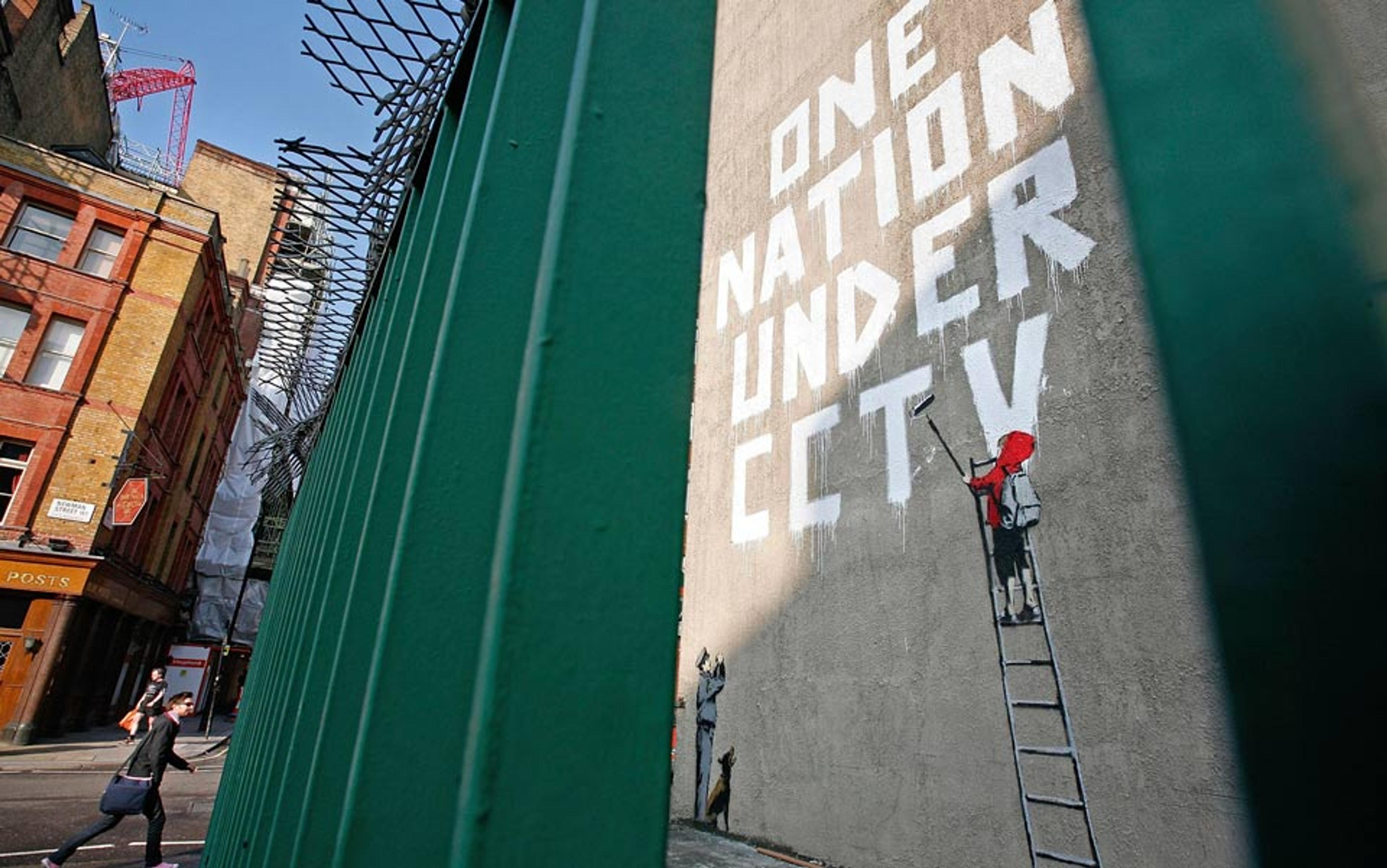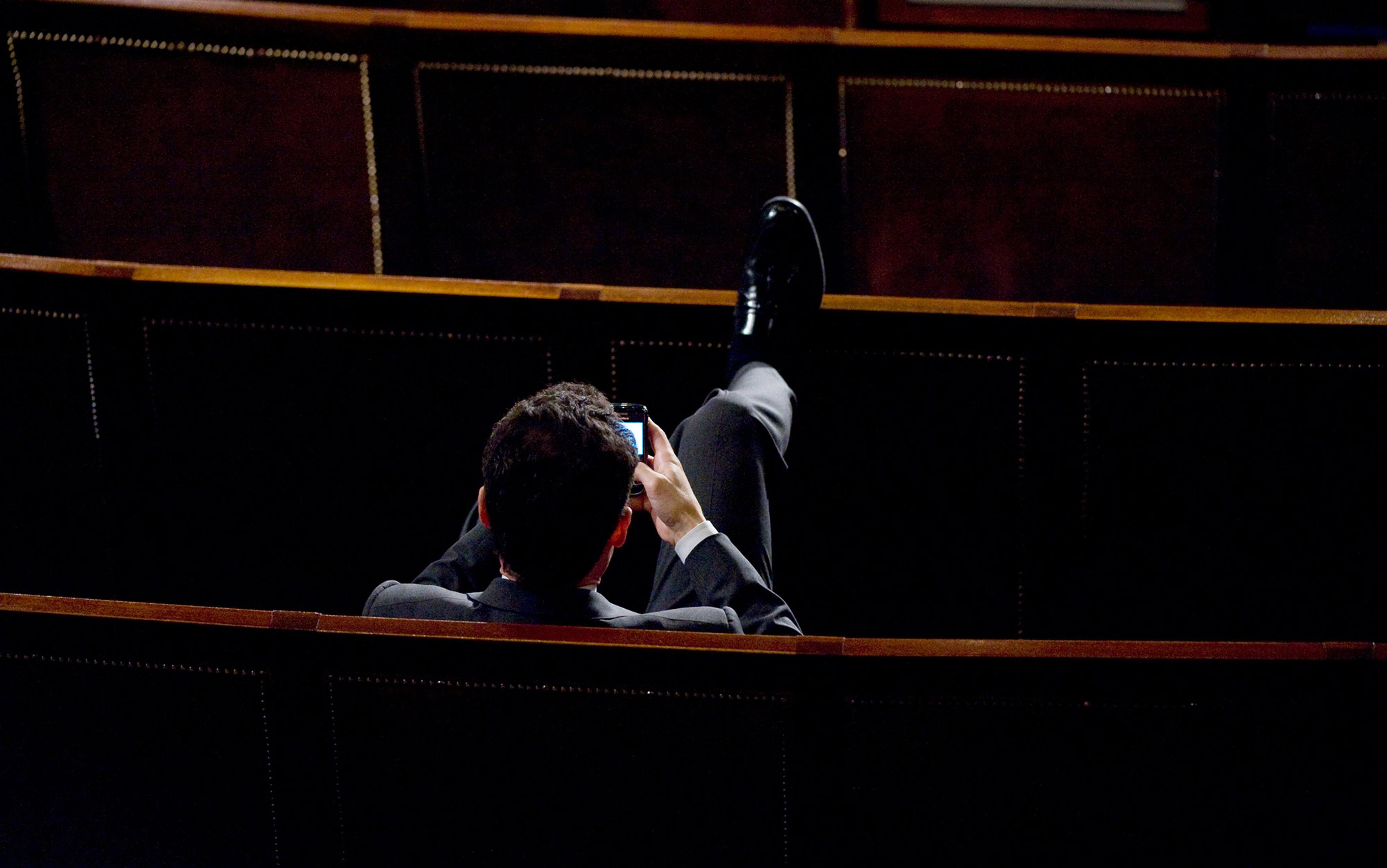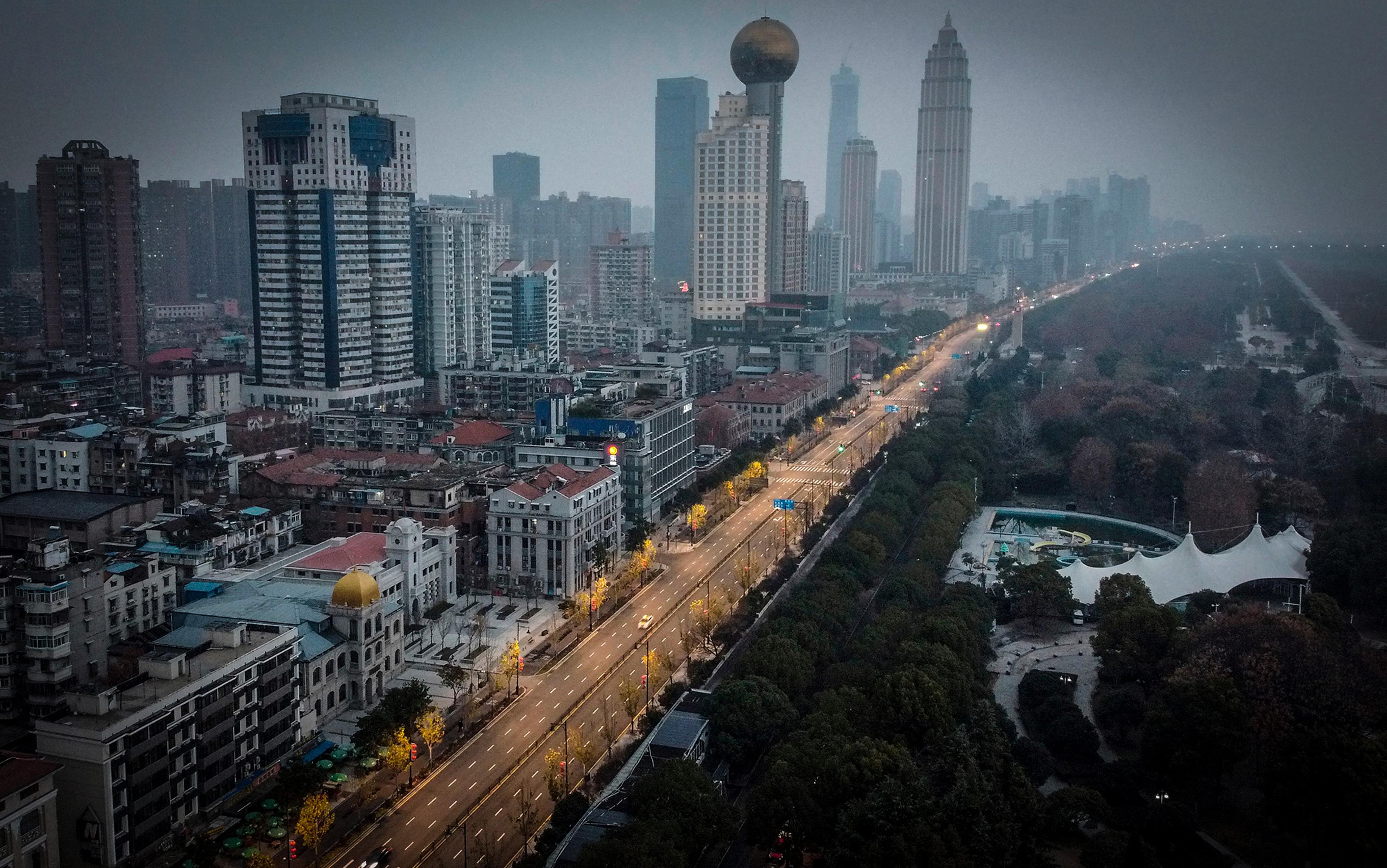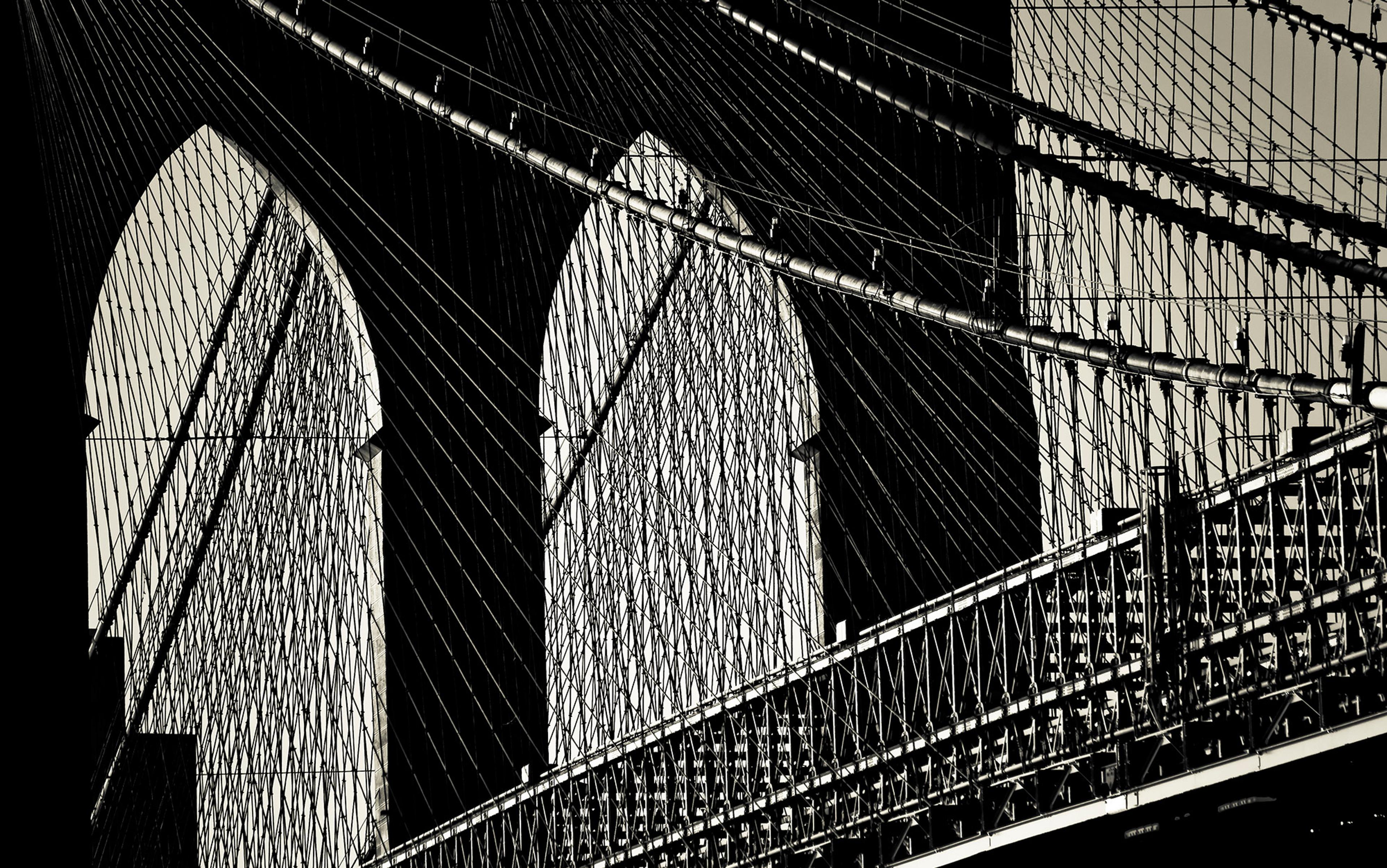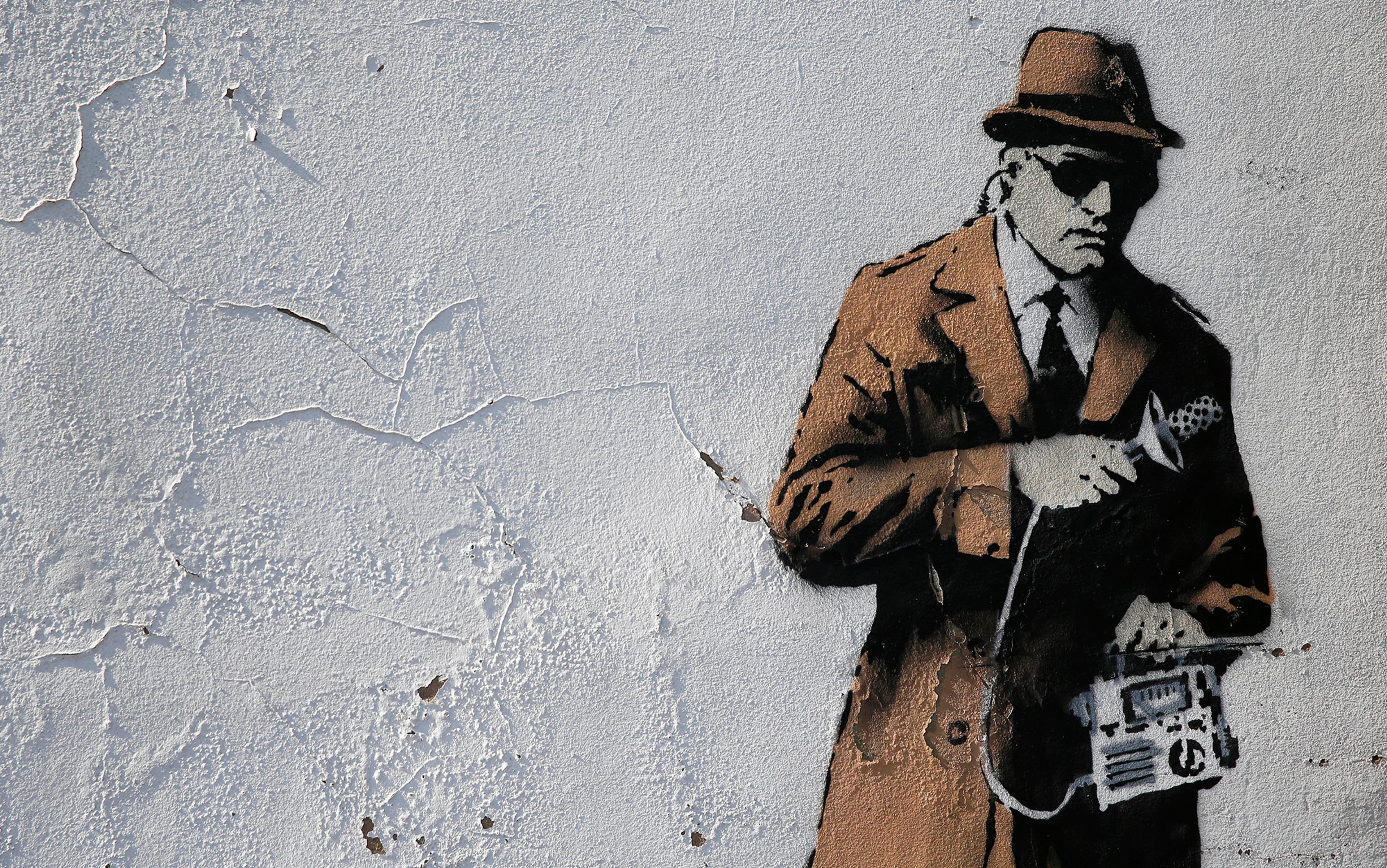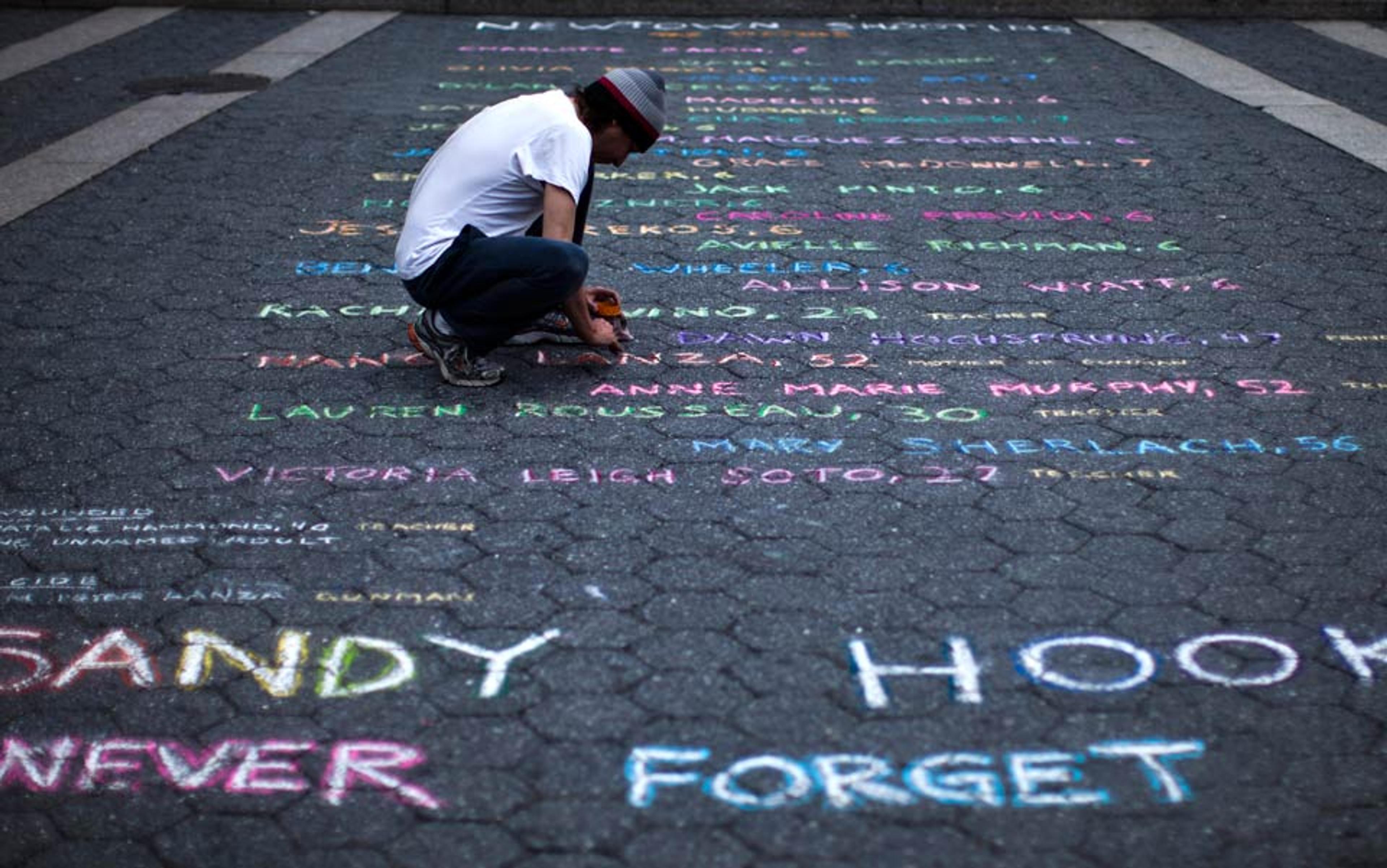Suppose you’re walking home one night, alone, and you decide to take a shortcut through a dark alley. You make it halfway through, when suddenly you hear some drunks stumbling behind you. Some of them are shouting curses. They look large and powerful, and there are several of them. Nonetheless, you feel safe, because you know someone is watching.
You know this because you live in the future where surveillance is universal, ubiquitous and unavoidable. Governments and large corporations have spread cameras, microphones and other tracking devices all across the globe, and they also have the capacity to store and process oceans of surveillance data in real time. Big Brother not only watches your sex life, he analyses it. It sounds nightmarish — but it might be inevitable. So far, attempts to control surveillance have generally failed. We could be headed straight for the panopticon, and if recent news developments are any indication, it might not take that long to get there.
Maybe we should start preparing. And not just by wringing our hands or mounting attempts to defeat surveillance. For if there’s a chance that the panopticon is inevitable, we ought to do some hard thinking about its positive aspects. Cataloguing the downsides of mass surveillance is important, essential even. But we have a whole literature devoted to that. Instead, let’s explore its potential benefits.
The first, and most obvious, advantage of mass surveillance is a drastic reduction in crime. Indeed, this is the advantage most often put forward by surveillance proponents today. The evidence as to whether current surveillance achieves this is ambiguous; cameras, for instance, seem to have an effect on property crime, but not on incidences of violence. But today’s world is very different from a panopticon full of automatically analysed surveillance devices that leave few zones of darkness.
If calibrated properly, total surveillance might eradicate certain types of crime almost entirely. People respond well to inevitable consequences, especially those that follow swiftly on the heels of their conduct. Few would commit easily monitored crimes such as assault or breaking and entering, if it meant being handcuffed within minutes. This kind of ultra-efficient police capability would require not only sensors capable of recording crimes, but also advanced computer vision and recognition algorithms capable of detecting crimes quickly. There has been some recent progress on such algorithms, with further improvements expected. In theory, they would be able to alert the police in real time, while the crime was still ongoing. Prompt police responses would create near-perfect deterrence, and violent crime would be reduced to a few remaining incidents of overwhelming passion or extreme irrationality.
If surveillance recordings were stored for later analysis, other types of crimes could be eradicated as well, because perpetrators would fear later discovery and punishment. We could expect crimes such as low-level corruption to vanish, because bribes would become perilous (to demand or receive) for those who are constantly under watch. We would likely see a similar reduction in police brutality. There might be an initial spike in detected cases of police brutality under a total surveillance regime, as incidents that would previously have gone unnoticed came to light, but then, after a short while, the numbers would tumble. Ubiquitous video recording, mobile and otherwise, has already begun to expose such incidents.
On a smaller scale, mass surveillance would combat all kinds of abuses that currently go unreported because the abuser has power over the abused. You see this dynamic in a variety of scenarios, from the dramatic (child abuse) to the more mundane (line managers insisting on illegal, unpaid overtime). Even if the victim is too scared to report the crime, the simple fact that the recordings existed would go a long way towards equalising existing power differentials. There would be the constant risk of some auditor or analyst stumbling on the recording, and once the abused was out of the abuser’s control (grown up, in another job) they could retaliate and complain, proof in hand. The possibility of deferred vengeance would make abuse much less likely to occur in the first place.
With reduced crime, we could also expect a significant reduction in police work and, by extension, police numbers. Beyond a rapid-reaction force tasked with responding to rare crimes of passion, there would be no need to keep a large police force on hand. And there would also be no need for them to enjoy the special rights they do today. Police officers can, on mere suspicion, detain you, search your person, interrogate you, and sometimes enter your home. They can also arrest you on suspicion of vague ‘crimes’ such as ‘loitering with intent’. Our present police force is given these powers because it needs to be able to investigate. Police officers can’t be expected to know who committed what crime, and when, so they need extra powers to be able to figure this out, and still more special powers to protect themselves while they do so. But in a total-surveillance world, there would be no need for humans to have such extensive powers of investigation. For most crimes, guilt or innocence would be obvious and easy to establish from the recordings. The police’s role could be reduced to arresting specific individuals, who have violated specific laws.
If all goes well, there might be fewer laws for the police to enforce. Most countries currently have an excess of laws, criminalising all sorts of behaviour. This is only tolerated because of selective enforcement; the laws are enforced very rarely, or only against marginalised groups. But if everyone was suddenly subject to enforcement, there would have to be a mass legal repeal. When spliffs on private yachts are punished as severely as spliffs in the ghetto, you can expect the marijuana legalisation movement to gather steam. When it becomes glaringly obvious that most people simply can’t follow all the rules they’re supposed to, these rules will have to be reformed. In the end, there is a chance that mass surveillance could result in more personal freedom, not less.
The military is another arm of state power that is ripe for a surveillance-inspired shrinking. If cross-border surveillance becomes ubiquitous and effective, we could see a reduction in the $1.7 trillion that the world spends on the military each year. Previous attempts to reduce armaments have ultimately been stymied by a lack of reliable verification. Countries can never trust that their enemies aren’t cheating, and that encourages them to cheat themselves. Arms races are also made worse by a psychological phenomenon, whereby each side interprets the actions of the other as a dangerous provocation, while interpreting its own as purely defensive or reactive. With cross-border mass surveillance, countries could check that others are abiding by the rules, and that they weren’t covertly preparing for an attack. If intelligence agencies were to use all the new data to become more sophisticated observers, countries might develop a better understanding of each other. Not in the hand-holding, peace-and-love sense, but in knowing what is a genuine threat and what is bluster or posturing. Freed from fear of surprising new weapons, and surprise attacks, countries could safely shrink their militaries. And with reduced armies, we should be able to expect reduced warfare, continuing the historical trend in conflict reduction since the end of the Second World War.
Of course, these considerations pale when compared with the potential for mass surveillance to help prevent global catastrophic risks, and other huge disasters. Pandemics, to name just one example, are among the deadliest dangers facing the human race. The Black Death killed a third of Europe’s population in the 14th century and, in the early 20th century, the Spanish Flu killed off between 50 and 100 million people. In addition, smallpox buried more people than the two world wars combined. There is no reason to think that great pandemics are a thing of the past, and in fact there are reasons to think that another plague could be due soon. There is also the possibility that a pandemic could arise from synthetic biology, the human manipulation of microbes to perform specific tasks. Experts are divided as to the risks involved in this new technology, but they could be tremendous, especially if someone were to release, accidentally or malevolently, infectious agents deliberately engineered for high transmissibility and deadliness.
You can imagine how many lives would have been saved had AIDS been sniffed out by epidemiologists more swiftly
Mass surveillance could help greatly here, by catching lethal pandemics in their earliest stages, or beforehand, if we were to see one being created artificially. It could also expose lax safety standards or dangerous practices in legitimate organisations. Surveillance could allow for quicker quarantines, and more effective treatment of pandemics. Medicines and doctors could be rushed to exactly the right places, and micro-quarantines could be instituted. More dramatic measures, such as airport closures, are hard to implement on a large scale, but these quick-response tactics could be implemented narrowly and selectively. Most importantly, those infected could be rapidly informed of their condition, allowing them to seek prompt treatment.
With proper procedures and perfect surveillance, we could avoid pandemics altogether. Infections would be quickly isolated and eliminated, and eradication campaigns would be shockingly efficient. Tracking the movements and actions of those who fell ill would make it much easier to research the causes and pathology of diseases. You can imagine how many lives would have been saved had AIDS been sniffed out by epidemiologists more swiftly.
Likewise, mass surveillance could prevent the terrorist use of nukes, dirty bombs, or other futuristic weapons. Instead of blanket bans in dangerous research areas, we could allow research to proceed and use surveillance to catch bad actors and bad practices. We might even see an increase in academic freedom.
Surveillance could also be useful in smaller, more conventional disasters. Knowing where everyone in a city was at the moment an earthquake struck would make rescue services much more effective, and the more cameras around when hurricanes hit, the better. Over time, all of this footage would increase our understanding of disasters, and help us to mitigate their effects.
Indeed, there are whole new bodies of research that could emerge from the data provided by mass surveillance. Instead of formulating theories and laboriously recruiting a biased and sometimes unwilling group for testing, social scientists, economists and epidemiologists could use surveillance data to test their ideas. And they could do it from home, immediately, and have access to the world’s entire population. Many theories could be rapidly confirmed or discarded, with great benefit to society. The panopticon would be a research nirvana.
Lying and hypocrisy would become practically impossible, and one could no longer project a false image of oneself
Mass surveillance could also make our lives more convenient, by eliminating the need for passwords. The surveillance system itself could be used for identification, provided the algorithms were sufficiently effective. Instead of Mr John Smith typing in ‘passw0rd!!!’ to access his computer or ‘2345’ to access his money, the system could simply track where he was at all times, and grant him access to any computers and money he had the right to. Long security lines at airports could also be eliminated. If surveillance can detect prohibited items, then searches are a waste of time. Effective crime detection and deterrence would mean that people would have little reason to lock their cars or their doors.
Doing business in a mass surveillance society would be smoother, too. Outdoor festivals and concerts would no longer need high fences, security patrols, and intimidating warnings. They could simply replace them with clear signs along the boundary of the event, as anyone attending would be identified and billed directly. People could dash into a shop, grab what they needed, and run out, without having to wait in line or check out. The camera system would have already billed them. Drivers who crashed into parked cars would no longer need to leave a note. They’d be tracked anyway, and insurance companies would have already settled the matter by the time they returned home. Everyday human interactions would be changed in far-reaching ways. Lying and hypocrisy would become practically impossible, and one could no longer project a false image of oneself. In the realm of personal identity, there would be less place for imagination or reinvention, and more place for honesty.
Today’s intricate copyright laws could be simplified, and there would be no need for the infantilising mess of reduced functionality that is ‘Digital Rights Management’. Surveillance would render DRM completely unnecessary, meaning that anyone who purchased a song could play it anytime, on any machine, while copying it and reusing it to their heart’s content. There would be no point in restricting these uses, because the behaviour that copyrights holders object to — passing the music on to others — would be detected and tagged separately. Every time you bought a song, a book, or even a movie, you’d do so knowing that it would be with you wherever you went for the rest of your life.
The virtues and vices of surveillance are the imagined virtues and vices of small villages, which tend to be safe and neighbourly, but prejudiced and judgemental. With the whole world as the village, we can hope that the multiplicity of cultures and lifestyles would reduce a global surveillance culture’s built-in potential for prejudice and judgment. With people more trusting, and less fearful, of each other, we could become more willing to help out, more willing to take part in common projects, more pro-social and more considerate. Yes, these potential benefits aren’t the whole story on mass surveillance, and I would never argue that they outweigh the potential downsides. But if we’re headed into a future panopticon, we’d better brush up on the possible upsides. Because governments might not bestow these benefits willingly — we will have to make sure to demand them.
